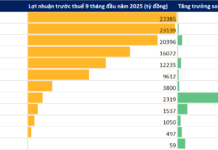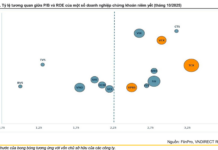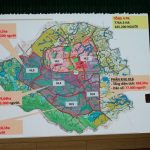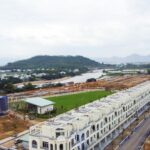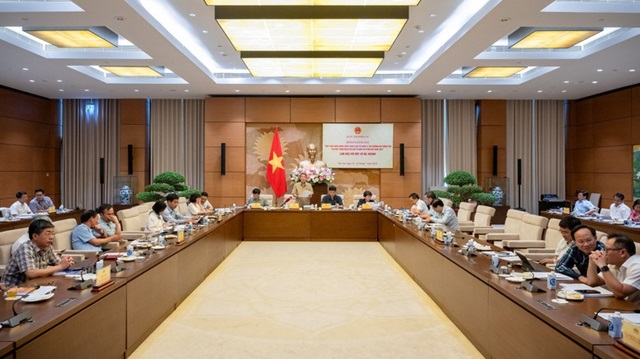
Soaring real estate prices, far exceeding their actual value; supply-demand imbalance in segments; limited affordable housing options for citizens – Image: VGP/LS
|
During the working session, the Monitoring Delegation listened to reports from representatives of the Ministry of Construction, the Ministry of Planning and Investment, the Ministry of Natural Resources and Environment, and the Ministry of Justice regarding the issuance and implementation of policies and laws related to the management of the real estate market and the development of social housing from 2015 to the end of 2023, within their respective domains.
Based on the reports, discussions, and on-site monitoring in various localities, the Vice Chairman of the National Assembly observed that in recent times, there has been a significant decline in real estate supply, mostly from projects initiated in the past, with very few new developments. Real estate prices have soared to unprecedented levels, and there have been periods of “illusory” real estate fever, far exceeding their actual value. Furthermore, there is a supply-demand imbalance across segments, and while there is a high demand from citizens, there is a limited supply of affordable housing options.
Additionally, the implementation of projects has faced challenges, with many experiencing delays or even coming to a halt, while the development of new projects has slowed down. Meanwhile, new forms of real estate (condotels, officetels, shophouses, and resort villas) have proliferated, but the legal framework governing them is not yet comprehensive and robust, leading to difficulties and complications.
Regarding social housing development, the Vice Chairman of the National Assembly stated that the number of social housing units provided to the market falls far short of the demand. Most localities have not met their social housing development targets, and there are numerous bottlenecks in this regard. In some cases, the housing provided does not match the needs of the citizens, resulting in a lack of buyers or tenants, while in most areas, there is a shortage of supply. There are also difficulties and limitations in allocating and utilizing land funds, and there has been a lack of investment capital from the state budget for social housing. The mechanisms and policies related to tax incentives have not yielded the expected outcomes, and administrative procedures and investment processes remain cumbersome, overlapping, and time-consuming.
The Vice Chairman of the National Assembly requested that the four ministries, within their respective domains, incorporate the relevant content into the circulars and decrees that are currently being drafted or will be promulgated, or propose amendments to the relevant laws. The ministries and sectors should also pay close attention to the recommendations made by the localities, as many of them are reasonable and grounded in practical needs. Furthermore, they should supplement their reports with any missing information to assist the Monitoring Delegation.
During the working session, the members of the Monitoring Delegation requested that the Ministry of Natural Resources and Environment provide additional information on their coordination with the Ministry of Construction and the Ministry of Finance in monitoring the use of land use fees and land lease fees to support localities in compensation and resettlement. They also asked for a clearer assessment of their coordination with relevant ministries in directing and monitoring the use of land funds for social housing development. The Ministry of Justice was requested to provide more detailed information and data on their activities related to inspecting, reviewing, and handling legal documents, as well as their efforts to ensure the consistency and compatibility of the legal system.
The members of the Monitoring Delegation also suggested that the ministries and sectors clarify solutions to overcome obstacles in issuing ownership certificates for condotels; promptly issue guidance on implementing the methods for determining land prices, especially regarding the uniform application of assumptions in the calculation method using surplus value; and refine the criteria for identifying eligible beneficiaries of social housing to ensure accuracy and effectiveness. They also requested a report on the procedures, processes, and steps involved in obtaining an investment license for a real estate or social housing project, including the number of steps, stamps, and signatures required.
Some members also noted that the disbursement of support credit packages, including the VND 120,000 billion package, has not been effective due to complicated borrowing conditions, high-interest rates, and short loan terms. They also pointed out the lack of appropriate support from the state budget in this regard.
At the working session, Minister of Construction Nguyen Thanh Nghi and the leaders of the four ministries provided explanations and clarifications on the issues raised by the Monitoring Delegation. Minister Nguyen Thanh Nghi emphasized that the 2023 Law on Real Estate Trading has addressed many of the issues and challenges that arose in the management of the real estate market. Notably, the Law has supplemented specific provisions on the principles, measures, and authorities for regulating the real estate market, thereby providing the necessary tools for state management and preventing confusion in market regulation, as experienced in the past.
Speaking at the working session, Vu Hong Thanh, Chairman of the Economic Committee, requested the ministries and sectors to address the issues within the scope of their assigned functions and tasks. He also urged them to enhance coordination with localities to resolve any obstacles that may arise during the implementation of projects, especially in the initial phase, following the recent amendments to the Law on Land, the Law on Housing, the Law on Real Estate Trading, and the Law on Credit Institutions, which will take effect on August 1, 2024, particularly for ongoing projects.
Opportunity for foreigners: 8.5 million abandoned houses in Japan
With over 8.5 million vacant houses in Japan becoming a burden for the local population, foreigners see it as an opportunity to buy affordable homes.
Satellite urban area planning, cheaper residential land prices compared to agricultural land in Dong Anh and Thuong Tin
Hoà Lạc urban area is currently offering land at approximately 20 million VND/m2, which is much cheaper than the land prices in areas such as Thường Tín, Đông Anh, and other suburban areas.










